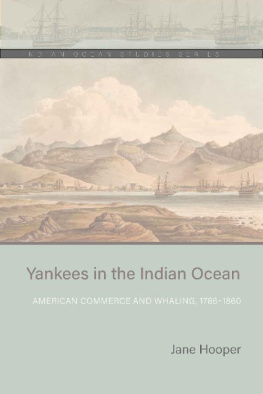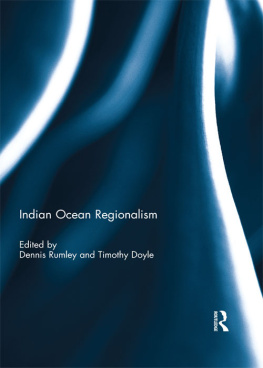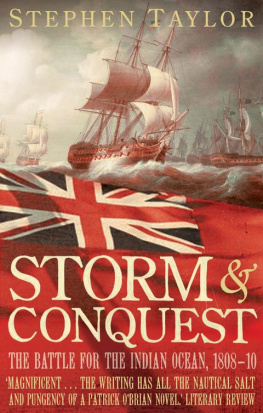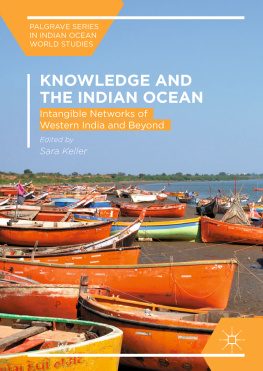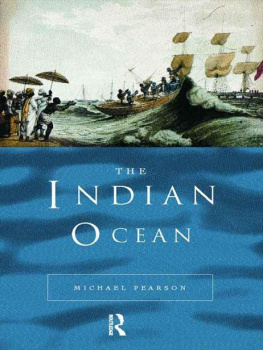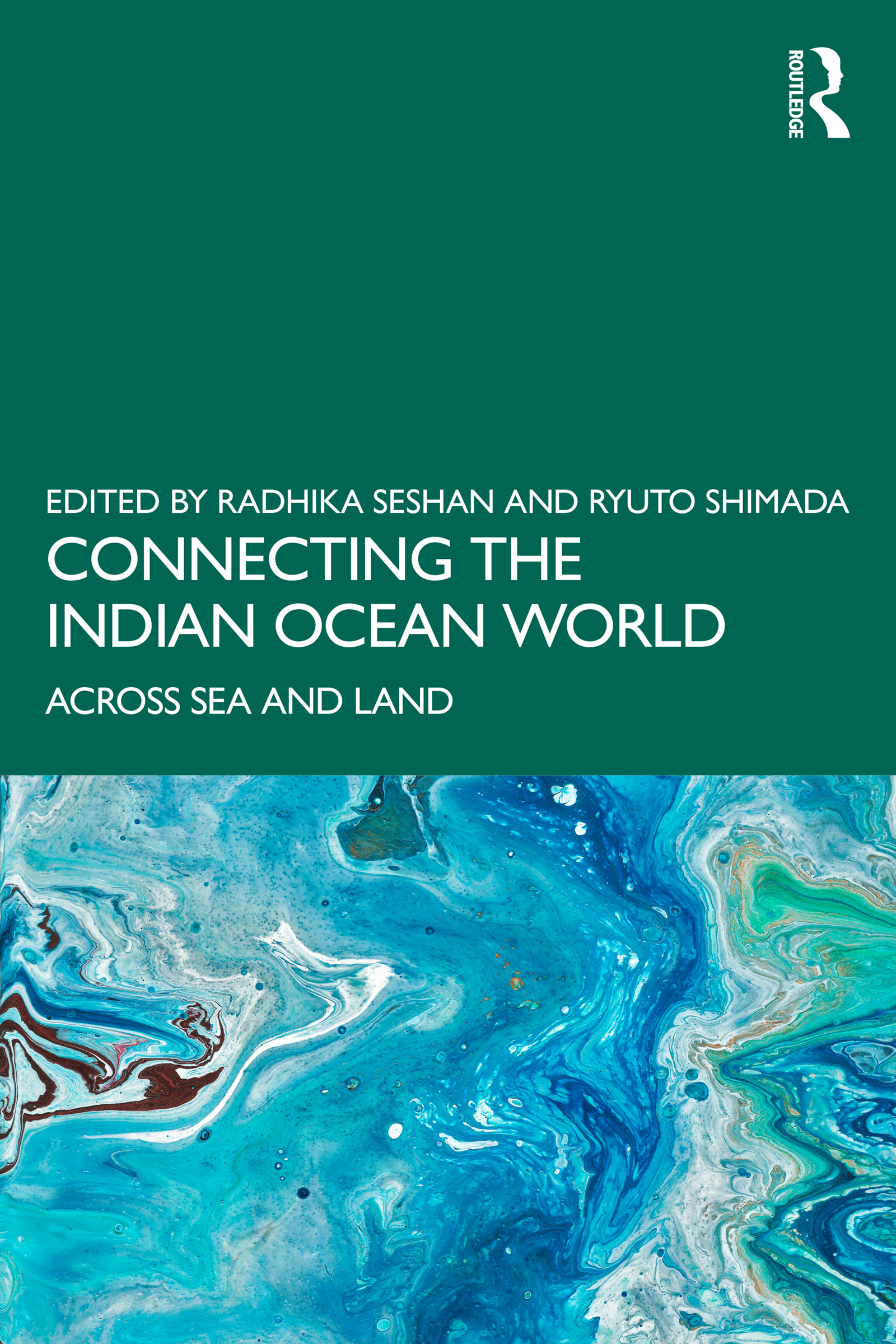
Connecting the Indian Ocean World
The Indian Ocean world has a rich history of socio-economic and cultural exchanges across time and space. This book and its companion, Merchants and Ports in the Indian Ocean World, explore these connections around the wider Indian Ocean world.
The book examines the many overlapping linkages that existed from the early modern period and into the colonial era. It offers a clear understanding of the economic networks that extended across the Indian Ocean and the Atlantic during the 19th century. With a critical historical lens, the volume discusses themes like the opium trade in the Malay-Indonesian Archipelago the biggest opium trade market at the time; the Safavid mission to Siam; and the economic relationship between Pondicherry and West Africa, via France.
Rich in archival material, this book will be of interest for scholars and researchers of Indian Ocean history, maritime history, Indian history, economic and commercial history, South Asian history, and social history, anthropology, and trade relations in general.
Radhika Seshan is former head and retired professor of the Department of History, Savitribai Phule Pune University, and is now visiting faculty at the Symbiosis School for Liberal Arts, Pune, India. Her work has been primarily in the areas of economic history, particularly maritime and urban history of early modern India. Author of three books, she has edited or co-edited many others, and her most recent publication is Wage Earners in India 15001900: Regional Approaches in an International Context, co-edited with Jan Lucassen (2022).
Ryuto Shimada is associate professor, Department of Asian History, Graduate School of Humanities and Sociology, The University of Tokyo. The author of The Intra-Asian Trade in Japanese Copper by the Dutch East India Company during the Eighteenth Century (2006), he has published extensively in Japanese and in English on aspects of the networks of the Indian Ocean world in the early modern age.
Connecting the Indian Ocean World Across Sea and Land
Edited by Radhika Seshan and Ryuto Shimada

Designed cover image: Getty image
First published 2023
by Routledge
4 Park Square, Milton Park, Abingdon, Oxon OX14 4RN
and by Routledge
605 Third Avenue, New York, NY 10158
Routledge is an imprint of the Taylor & Francis Group, an informa business
2023 selection and editorial matter, Radhika Seshan and Ryuto Shimada; individual chapters, the contributors
The right of Radhika Seshan and Ryuto Shimada to be identified as the authors of the editorial material, and of the authors for their individual chapters, has been asserted in accordance with sections 77 and 78 of the Copyright, Designs and Patents Act 1988.
All rights reserved. No part of this book may be reprinted or reproduced or utilised in any form or by any electronic, mechanical, or other means, now known or hereafter invented, including photocopying and recording, or in any information storage or retrieval system, without permission in writing from the publishers.
Trademark notice: Product or corporate names may be trademarks or registered trademarks, and are used only for identification and explanation without intent to infringe.
British Library Cataloguing-in-Publication Data
A catalogue record for this book is available from the British Library
ISBN: 978-1-032-24832-5 (hbk)
ISBN: 978-1-032-43929-7 (pbk)
ISBN: 978-1-003-36248-7 (ebk)
DOI: 10.4324/9781003362487
Typeset in Bembo
by SPi Technologies India Pvt Ltd (Straive)
To our families and our colleagues
Illustrations
Maps
Figures
Tables
Acknowledgements
This is the second of two volumes that are the outcome of two seminars organised under the auspices of the ICSSR-JSPS Joint Seminar Grant, which was approved by the two organisations in September 2016. The first seminar was held in The University of Tokyo in March 2017, and the ICSSR permitted us to roll over the funds remaining from the first seminar to host a follow-up seminar in Pune in January 2018. Our sincere thanks to our colleagues and to the staff in both The University of Tokyo and Savitribai Phule Pune University (formerly the University of Pune) for their help in all aspects of hosting the seminars. Prof. Tsukasa Mizushima in Tokyo and Dr (Mrs.) Sumitra Kulkarni are particularly to be thanked, as, despite their busy schedules as heads of their departments, they made time to welcome all the participants and to be as much a part of the discussions as their schedules permitted.
Once again, our thanks to our students, for the many ways in which they helped: helping us in our sightseeing and in all the running around that is so necessary while organising any seminar. And, of course, for the many questions that they asked, that made it clear to us that we were taking too many things for granted, and these needed to be explained further.
Antara Ray of Routledge has been our go-to person throughout the process of putting together this work, and suggesting that it be split up into two volumes (both of which share a common sub-title). Subsequently, Shloka Chauhan and Angeline Joy, also of Routledge, has taken over, very capably, and has continued to help us.
Finally, our thanks to all those who participated, and who have patiently borne with us, and the delays imposed, first by our own schedules, and then the pandemic enforced problems.
Radhika Seshan and Ryuto Shimada
Contributors
Neelambari Jagtap is assistant director of the Chhatrapati Shahu Maharaj Centre for Studies in Maratha History, Shivaji University, Kolhapur, India. Her main areas of research are cultural history and history of art, and she has combined these areas in her research on ports and urbanisation in India the 18th century. She was earlier museum director of the History Department Museum in Dr Babasaheb Ambedkar Marathwada University, Aurangabad, and is currently engaged in building up the new museum complex of Shivaji University.
Kazuo Kobayashi is associate professor of Global Economic History at the Faculty of Political Science and Economics, Waseda University. He holds a PhD (Economic History) from the London School of Economic and Political Science (2016). He is the author of Indian Cotton Textiles in West Africa: African Agency, Consumer Demand and the Making of the Global Economy (Cham: Palgrave Macmillan, 2019) and Beyond the Atlantic Slave Trade (Nagoya: The University of Nagoya Press, 2021, in Japanese). He has also published journal articles and book chapters on the British Atlantic slave trade, on tropical development, and on the economic globalisation during the 18th and 19th centuries. He is currently preparing a new book on the history of global economy from c. 1500 to 1913.
Sumitra Kulkarni retired as professor and head of the Department of History, Savitribai Phule Pune University. A specialist in Maratha history, she has a great many research papers to her credit in national and international journals. She is the author of The Satara Raj, 1818-1848: A Study in History, Administration, and Culture.
Tomoko Morikawa is associate professor at the Graduate School of Humanities and Sociology, The University of Tokyo. She holds a PhD from Kyoto University. She specialises in Iranian history, and her main research works are
Next page

